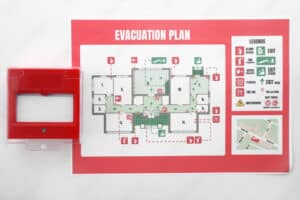
Moving into a new home is exciting, but with it comes a host of new rules that can make or break your experience. Strata managers are one of the most important authorities when it comes to partial ownership schemes. Let’s talk about what they do and why they matter.
What is a strata manager?
A strata, also known as a strata scheme or strata title, is a scheme that allows for partial ownership of a property or allotment. While this may include an apartment, townhouse or flat, owners in strata are also entitled to the use of common property like driveways, pools, gardens and foyer or lobby areas which are controlled by the Owners Corporation. The Owners Corporation may appoint a licensed Strata Manager to assist with the maintenance and management of these common areas, and maintaining the community of your property, is one of the most important aspects you will need to deal with as a strata homeowner.
According to the Property, Stock and Business Agents Act (2002), a strata manager is ‘a person who, for some reward, carries out various owner’s corporation acts and functions as outlined in the property’s by-laws’. Put simply, a strata manager is a professional who oversees and takes care of the owner’s corporation of a building or set of units.
How is a strata manager different from a building or property manager?
While strata managers work concurrently with building and property managers, they are not the same. A building manager, also referred to as a Care Taker or Facilities Manager, is responsible for coordinating the regular upkeep and maintenance of common property. This can include directing cleaning and janitorial staff, carrying out basic repairs around the building, and generally maintaining a safe environment for occupants and visitors.
A property manager works on behalf of one owner for the maintenance of a single property. Property managers act as a middle between owner and tenant, and are responsible for the collection of rent, carrying out rental inspections and ensuring that the facilities of the rental property are functional and maintained.
What are the duties of a strata manager?
Strata managers’ duties can be split into three main areas: administration, community and finance. While some ancillary duties may step outside of these parameters, the majority of a strata manager’s job comes down to these categories.
The administrative side of the role involves scheduling owners’ meetings, taking care of legal compliance and arranging correspondence between owners and potential buyers. A strata manager will also take care of things like valuations and building insurance. The maintenance of communal areas, like pool cleaning, gardening and exterior painting, also fall under the umbrella of administrative responsibility.
Strata managers also take care of many financial responsibilities of the property. This includes setting draft budgets that cover daily operations needs of a building to planning for future capital works projects. They collect levies from owners based on the approved budgets, help with debt recovery if owners fall behind and ensure contractors providing service to the Owners Corporation e are paid correctly and on time.
One of the biggest aspects of a strata scheme is the community that comes from being part of a greater living space. Notwithstanding laws that regulate strata living, the owners corporation freely dictates the standards at which they expect occupants to behave through by-laws. Strata managers can act as a mediator between owners when disputes arise, and enforce by-laws when owners or tenants have violated them.
Expect the best from your strata manager!
Whether you’re a new owner, or adding an investment property to your portfolio, understanding the roles and responsibilities of your strata manager will make your life easier. Get in touch with More Than Strata today, and learn about just what effective strata management means for your property.





